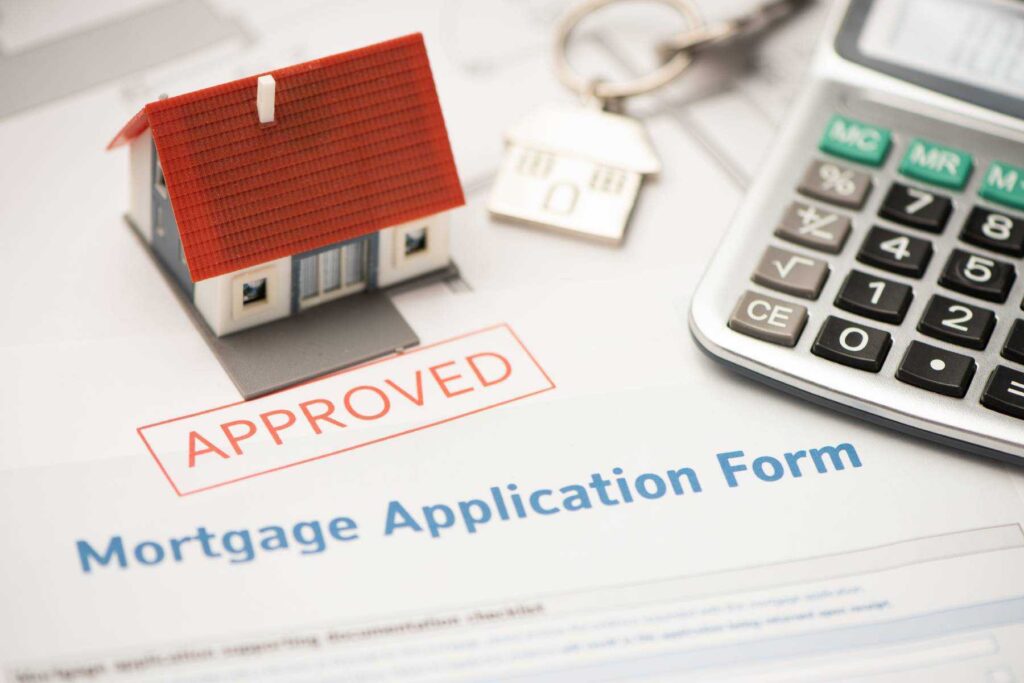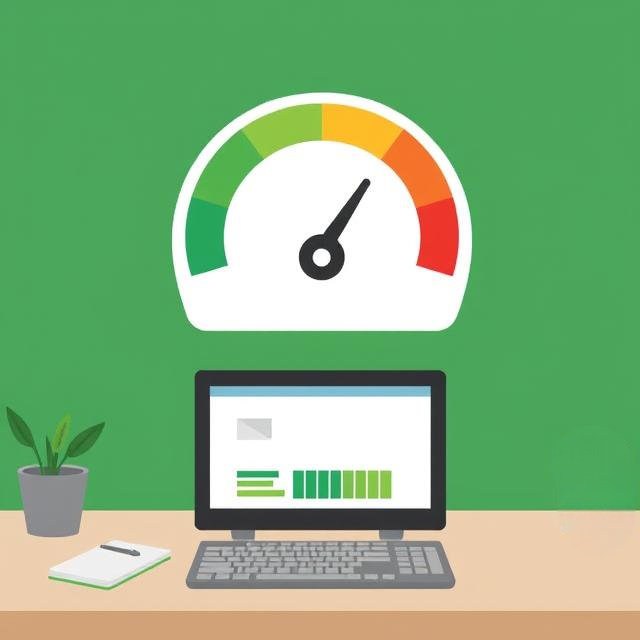
Mortgages are house loans. Review your income, savings, and credit score first. More than just having a high score is being approved;
it can also entail getting better interest rates. Calculate how much you can afford to borrow against your monthly income and expenses factoring in things such as stamp duty, legal fees, and moving costs.
An AIP-AIP is what it is known as in the industry- from one lender will give you an approximate amount they might be willing to lend based on your financial particulars.
Study other mortgage options in the UK, whether fixed rate, variable rate, or tracker mortgages to see which one suits you best.
After picking the right product, file a formal mortgage application accompanied by documentation like proof of income (pay slips or tax returns), bank statements, identification documents as well as detail about the property you want to buy.
The lender carries out a very detailed assessment on you and valuation on the property.
If approved then you get a mortgage offer with all terms and conditions.
Table of Contents
Introduction to House Loans in the UK
Do you ever dream of having your place in the head in the UK? Don’t worry.
There are lots of people who feel this way, and getting a house loan is usually, after all, the very first step towards making it happen.
The house loan world might seem particularly intimidating, but making sense of your options and what the lenders are looking for will allow you to take charge of your journey.
No matter whether you are an initial buyer or considering an upgrade, here’s everything that will take you closer to a house loan in the UK.
So let’s do that step-by-step to make it a bit easier to open the door to your new home!
Types of House Loans Available in the UK
There are different house loans available for those who search for house loans in the UK, and it is important to be in the know about this.
Mortgages are the most popular ones and are offered in different forms. Fixed-rate mortgages provide some sense of order in that your interest rate will stay at a constant level for a given period – usually two or five years.
This, therefore, makes it easier to budget since your payments shall not fluctuate. Periodic mortgages track interest rates on the market.
While they’re initially lower than fixed ones, that discount can be eroded over time, thereby affecting monthly payments.
For purchase and immediate disposal of an existing property, the purchase of bridging loans serves as a temporary measure to facilitate the smooth transition effectively.
Every type has got its benefits basing on the individual and financial objectives.
Read About: How To Sell on Ebay in uk
Requirements for Getting a House Loan

To get a home loan in the UK, show proof of steady money coming in. Most often, this is by pay slips but it can also be by tax returns if you are self-employed.
Your age will matter as well. Most firms want you to be at least 18 years old to lend you money. Some firms might have higher age limits based on their rules.
Also, a deposit saved up is an important requirement. In general, it falls between 5% and 20% of the value of the property.
Documentation is equally important. You will have to present identification and address verification documents as well as your financial history.
Most lenders will assess your existing debts and expenses before they approve your application. The management of these can go a long way in influencing their decision.
Tips for Improving Your Chances of Getting Approved
To improve your prospects of getting a home loan in the UK, make sure your financial documents are all in order.
I mean, lenders need to understand the clarity and transparency of your financial status. Then, review your credit report.
Correct any inaccuracies that could be lowering your score. With a clean record, lender confidence is substantially boosted.
Save for a larger deposit. The more you can contribute upfront to the purchase of a home, the less risk lenders perceive, which could lead to better interest rates.
Do remember to stay employed. A steady work history will help the lender feel confident about your ability to pay back the loan.
Don’t take on extra debt before you apply for a mortgage. New debt to income during underwriting is something that would raise eyebrows and ding your application.
The Importance of Credit Score and How to Improve It

The importance of credit rating is to get a house loan in the UK. Assessment of your financial reliability is by lenders.
Higher rating implies lower risk for a more favorable loan agreement or lower interest rate. It doesn’t take long to improve your credit score if you are dedicated to the process.
Begin by checking the report for any mistakes because correcting inaccuracies brings a huge increase in your score.
Paying your bills on time sets a very good picture before the lenders because it indicates responsibility.
You probably will never miss one payment once you set up direct debits. Another way of enhancing your creditworthiness is through reducing the existing debt. Try to pay off high-interest debts first-that will really make a difference.
Limit new applications within short periods, as too many inquiries can ding your score.
Over time, good habits accrue long-term improvements and generally make getting that home loan a bit more manageable.
Steps to Apply for a House Loan

Applying for a house loan doesn’t have to be cumbersome; a few simple steps can smoothen the process.
You start by assessing your financial condition. You review your income sources, your expenses, and the money you have in savings to figure out how much you can really go in for.
This gives you a much clearer view when you go to someone for lending. Then, shop around for various lenders and what they have on the table.
Run a comparison of interest rates with different terms and fees included among your options. This is going to enable you to get the very best bargain that’s tailored to your needs.
Paystubs, bank statements, and IDs are among the papers that you can look for. This way, you will not have to start searching after a later date. That will make it faster for the application process.
Complete the lender’s loan application form accurately after selection. Please be frank on your financial status to reduce new issues later.
Wait for a determination by the lender post submission, as they could ask for additional information or documentation during this period.
In existence, undergo all terms cautiously before concluding any contracts so that they coincide with what was talked about previously.
How Much Loan Can i Get For a House
When thinking about how much loan you can get for a house, several factors matter. Lenders look at your income, credit, and other debts you already have.
Your yearly pay is very important. On average, lenders might give about 4 to 5 times your total yearly income.
For example, if you make £40,000 each year then most likely you can borrow between £160,000 and £200,000. Another important factor is your deposit.
The greater the deposit that you put down, the better terms that you will get. The normal minimum deposit in the UK is about 5%, but if one can save up to 20%, it will go a long way in enhancing borrowing capacity.
Knowing these things throws light on what can be achieved when going after a house loan in the UK.
What is a Bridging Loan
When looking at home loans in the UK, it is good to know about different choices you have. One of these is a bridging loan.
This kind of short-term money help is for people who need quick access to cash, usually while waiting for long-term money support or the sale of an old house.
Ready money is often taken by buyers who wish to seal a new home before selling the old one. It gives easy cash flow, thus best for deals that need time.
Though, it mostly comes with high rates of interest when set side by side with normal home loans and is meant to be paid back in a short period-most times within 12 months.
Assess your financial situation before going in for a bridging loan. Be sure to have an exit strategy, that is how you plan to repay the loan when you get the permanent funding or after selling off your property.
Lenders also look keenly at this aspect while considering your application. If you plan to use this type of finance in your home buying journey in the UK, make sure you fully understand the terms associated with it and seek financial advice if needed.
Getting a grip on all these factors can smooth out your home-buying process while making sure you pick the right route that fits just for you.
FAQS
Q1: What are the main types of mortgages available in the UK?
- Fixed-Rate Mortgage: Interest rate remains constant for a set period.
- Variable-Rate Mortgage: Interest rate can fluctuate with the market.
- Tracker Mortgage: Follows the Bank of England base rate.
- Interest-Only Mortgage: Borrower pays only interest for a period, with the principal due at the end.
- Buy-to-Let Mortgage: For property investors renting out the property.
Q2: How much deposit do I need to buy a house in the UK?
Most of the time, lenders ask for a down payment of at least 5% to 20% of the home's price. A bigger down payment can make your odds better and might get you lower interest rates.
Q3: What are the eligibility criteria for a UK house loan?
- Proof of income and employment stability
- Good credit history
- Sufficient deposit
- Age (usually 18-75 years)
- Affordability assessment (based on your income and expenses)
Q4: How does my credit score affect my mortgage application?
A higher credit score improves your chances of approval and can lead to lower interest rates. Poor credit may restrict options or require a larger deposit.
Q5: How long does the mortgage approval process take?
Typically, it takes between 4 to 8 weeks from application to approval, depending on the lender and your circumstances.
Q6: What additional costs should I consider when applying for a house loan?
- Stamp duty land tax (SDLT)
- Valuation and survey fees
- Legal and conveyancing fees
- Mortgage arrangement or booking fees
- Insurance costs (home insurance, life insurance)
Q7: Can I get a mortgage if I am self-employed?
Yes, but you may need to provide additional documentation such as tax returns, business accounts, and proof of income stability.
Q8: Is it possible to get a mortgage with a low income?
It depends on the lender’s criteria. Some lenders offer special schemes or lower deposit options for low-income applicants, but affordability assessments will be strict.
Q9: What happens if I can’t keep up with my mortgage payments?
You should contact your lender immediately. They may offer solutions such as payment holidays, refinancing, or restructuring your loan to avoid repossession.
Q10: Can I remortgage or switch lenders?
Yes, remortgaging can help you get better interest rates or access equity in your home. The process involves applying with a new lender and paying any applicable fees.
Q11: How does the Help to Buy scheme work?
Help to Buy is a government scheme that offers equity loans or shared ownership options to help buyers purchase new-build homes with a smaller deposit.





